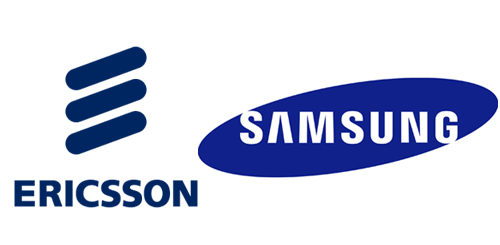Ericsson signs wireless licensing agreement with Samsung
New cross licence agreement covers GSM, UMTS and LTE standards for networks and handsets; ends patent-related legal rows

A legal dispute between Ericsson and Samsung has been settled after the pair signed a new licensing agreement covering the wireless technology used in devices such as televisions and smartphones.
The deal brings to an end all ongoing patent disputes between the two firms and includes international patent cross-licensing of cellular technologies, which also covers tablets and Blu-ray players.
MORE: Best tech to buy in 2014
Under the terms of the new agreement, Samsung will make an initial payment and pay ongoing royalty costs to Ericsson for the duration of the multi-year agreement.
According to Ericsson, the initial payment will impact its sales and net income in Q4 2013 by SEK4.2bn and SEK3.3bn (£395m and £310m) respectively. It will also affect operating cash flow in early 2014.
"We are pleased that we could reach a mutually fair and reasonable agreement with Samsung," said Kasim Alfalahi, Chief Intellectual Property Officer at Ericsson.
"This agreement allows us to continue to focus on bringing new technology to the global market and provides an incentive to other innovators to share their own ideas."
Get the What Hi-Fi? Newsletter
The latest hi-fi, home cinema and tech news, reviews, buying advice and deals, direct to your inbox.
The news comes days after Samsung confirmed a cross licence agreement with Google, which it says will lead to "deeper collaboration on research and development of current and future products".
It's not the first time we've seen Samsung and Google join forces, with the Samsung Galaxy Nexus the first collaboration between Google's Nexus range and Samsung's Galaxy brand.
MORE: Samsung Galaxy Nexus – review
And it also comes at a time when Google makes its exit from the smartphone manufacturing market after selling Motorola Mobility to Chinese computer manufacturer Lenovo in a deal worth $2.91bn.
MORE: Lenovo acquires Motorola Mobility from Google for $2.91bn
by Pete Hayman
Pete was content editor on What Hi-Fi?, overseeing production and publication of digital content. In creating and curating feature articles for web and print consumption, he provided digital and editorial expertise and support to help reposition What Hi-Fi? as a ‘digital-first’ title; reflecting the contemporary media trends. He is now a senior content strategist.
